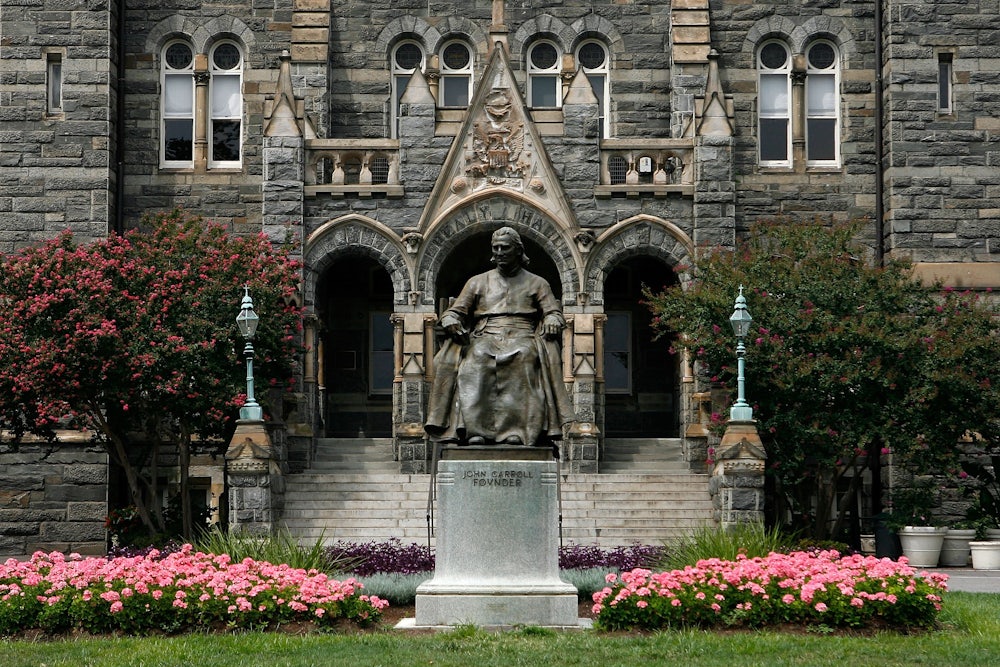University officials announced plans Thursday to create an institute for the study of slavery, rename two of its buildings after two African-Americans—including one slave who was sold by the university in 1838—and award preferential status to applicants the descendants of both the 272 slaves sold in 1838 and the slaves who built the university. University President John J. DeGioia also offered a formal apology for Georgetown’s past.
Though the offer of preferential admission status is certainly unprecedented by other universities, the question remains: Is it enough?
Georgetown University’s Working Group on Slavery, Memory and Reconciliation—the committee dedicated to researching the extent to which the university relied on slavery (the answer is a ton) and finding a way to make things right—did make a recommendation for a “meaningful financial commitment” that seems to not have been taken up, at least in the form of scholarships. The committee released a 102-page report on the its findings and reconciliation plan. From the report:
(The university will be) exploring the feasibility of admission and financial-aid initiatives that might be established for the descendant community....
We have also returned frequently to the question of reparations. While we acknowledge that the moral debt of slaveholding and the sale of the enslaved people can never be repaid, we are convinced that reparative justice requires a meaningful financial commitment from the University.
Regardless, it seems Georgetown is making a step in the right direction—even if it doesn’t go nearly far enough.
